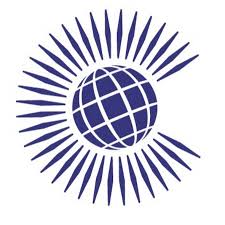- Advertisement -
The Commonwealth is made up of 53 independent countries that work together to pursue common goals which promote development, democracy and peace. The bloc has a combined population of 2.4 billion, one-third of the global total, of which more than 60 per cent are aged 29 or under.
Only two people have been head of the organisation – King George VI and Queen Elizabeth II, although the organisation has made it known the position is NOT hereditary.
The Commonwealth spans the globe and includes both advanced economies and developing countries from Africa (19 countries), Asia (7 countries), caribbean ( 13 countries), Europe (3 countries) and the pacific (11 countries).
More than half of member countries are made up of small states, usually with a population under 1.5 million, and 24 members are small island developing states,the Caribbean countries in particular.
The biggest country by population is India, which accounts for about half of the total (1.3 billion people).
The founding Commonwealth members were Australia, Canada, India, New Zealand, Pakistan, South Africa, Sri Lanka and the United Kingdom, although South Africa was kicked out after coming under heavy criticism during ‘Apartheid’ – returning in 1994 at the collapse of segregated rule.
The Commonwealth does not have a constitution as such, although it has adopted a Charter in 2012, which committed members to sixteen (16) values of democracy, gender equality, sustainable development and international peace and security.
Rwanda and Mozambique were not former British colonies, although the two became members in 2009 and 1995 respectively.
Time and time again, the Commonwealth has come under criticism for being a post-colonial club and for having little influence. Robert Mugabe took Zimbabwe out in 2003 after its membership was suspended amid reports of election rigging. The Gambia, under former president ‘Jammeh’, also announced its withdrawal in 2013 describing it as a “neo-colonial institution”, although membership has been restored (April 2018) under president Barrow.
The Commonwealth has observed more than 140 elections in nearly 40 countries since 1980. Commonwealth countries are among the highest performing in the (Mo Ibrahim) Index of African Governance, and make up 7 of the top 10 nations. In Sub-Saharan Africa, Commonwealth countries make up 7 of the top 10 highest performing countries for gender equality.
As London open it doors to the Commonwealth heads of Government Meeting this week (April 16-20), Commonwealth Secretary-general Lady Scotland, has intimated that: “Our member countries have committed to nurture and protect democracy, development and respect for diversity.”
The Gambia certainly needs help to ‘wipe off’ its debt burden consuming forty-percent (40%) of the budget total, and other forms of help too in all sectors to revive economic growth + employment across the country.
It is understood The Gambia is one of the agenda topics at the week-long conference, however, remains to be seen what President Barrow will say to his fellow world leaders and ‘Banjul’s’ role within the bloc in the months & years ahead.
Gibril saine. Twitter: @gibbysaine




